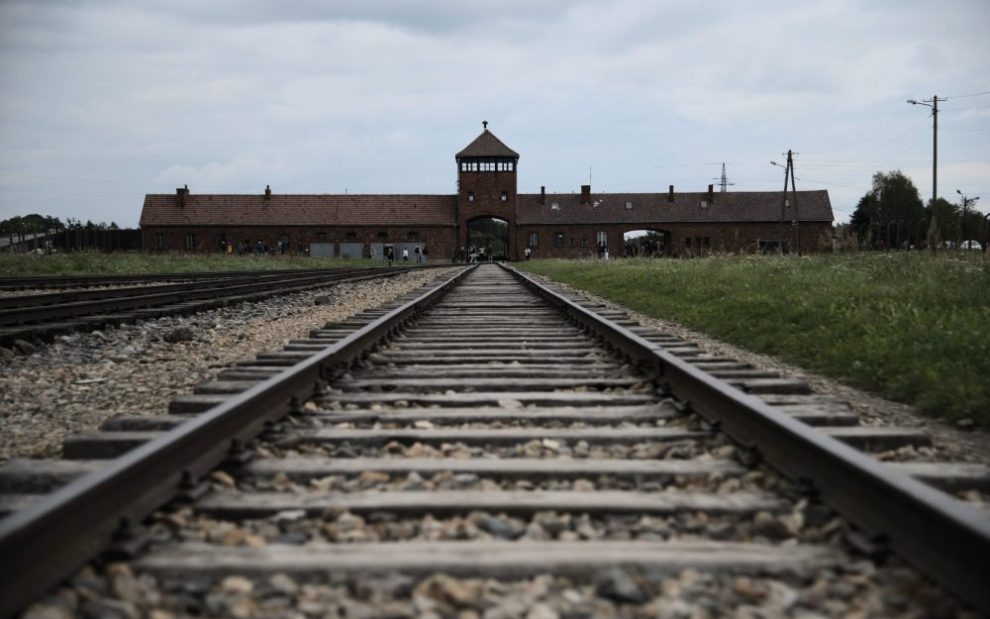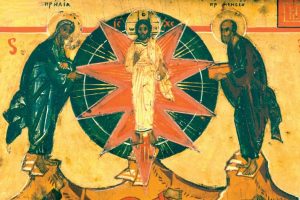“Hate is never right, and love is never wrong.”
–Roman Kent, Auschwitz survivor
In September, I visited Auschwitz-Birkenau for the first time. Studying and even teaching about the Shoah did not really prepare me to walk through the gates. Evil, pain, and horror filled the air as I stepped on ground made holy by the memory of the innocent victims brutally massacred there just over 75 years ago. “Your brother’s blood cries out to me from the ground,” says God to Cain as Cain tries to deflect responsibility for his brother’s murder (Gen. 4:11). Scripture swirled in my head as the tour walked us through the final brutal journey experienced by millions of our siblings during the Shoah.
As I walked through the buildings, I found myself overcome with two horrific realities: The agents of death at Auschwitz were Christian, and many of its architects were college professors. All too often we look at history and focus on people such as Hitler or Eichmann, but as historian Hannah Arendt notes, “The sad truth is that most evil is done by people who never make up their minds to be good or evil.”
It is this point on which I find myself focused as we observe Holocaust Remembrance Day this month. When we talk about the banality of evil, it is that sad truth I had not fully faced before—the biology professor who studies birds seemingly seamlessly goes about his day as an officer overseeing gas chambers and cataloguing birds in the area and after the war goes back to being a regular biologist and bird watcher.
“Good can be radical. Evil can never be radical; it can only be extreme,” concludes Arendt in her famous Eichmann in Jerusalem, “for it possesses neither depth nor any demonic dimension yet—and this is its horror—it can spread like a fungus over the surface of the earth and lay waste the entire world. Evil comes from a failure to think.”
If evil is radical, then it is easier to minimize as rare and exceptional. But the story of Auschwitz, for all its horror, is one of neighbors dehumanizing their neighbors. At the root of the failure to think is a failure of people to see others as fully human like themselves. The failure to think, in my opinion, reveals a preexisting failure to love. Cain fails to love Abel before he fails to think through his actions. Jesuit Father James Keenan captures this in his definition of sin as the “failure to bother to love.” Thus, the very ground cries out from our failure to love.
It is easy to have moral clarity about the Shoah. It is harder to face questions of complicity in the centuries of Christian antisemitism that rendered the violence of Auschwitz possible among neighbors. It is even harder to face the persistence of Christian antisemitism within our community. At Mass on October 8, the evening after Hamas’ deadly attack, I heard a blatantly antisemitic homily in which a visiting priest blamed the Jews for the crucifixion and implied the Abrahamic covenant null. When I asked the priest if he had read the Second Vatican Council’s Nostra Aetate (Declaration on the Relation of the Church to Non-Christian Religions), he ignored the question, admitting he wrote the homily weeks ago. He acknowledged that given the news, it was insensitive. Ultimately, he was sorry that I was offended but saw no problem in the content of his homily. It is an example of the failure to think that clouds our vision of our neighbors’ dignity—in this case that of our Jewish siblings.
We must face the fact that Christian antisemitism is not relegated to history but persists today. In Fratelli Tutti (On Fraternity and Social Friendship), Pope Francis argues that truth-telling and memory are integral to building peace in our communities. He notes that “nowadays, it is easy to be tempted to turn the page, to say that all these things happened long ago, and we should look to the future” but this is a mistake. “We can never move forward without remembering the past; we do not progress without an honest and unclouded memory.” The Shoah cannot be forgotten; neither can a litany of other horrific and extreme realities of violence and evil.
Antisemitism is rising. So too is Islamophobia. The increasing hate crimes are often rooted in hateful ways to identify the “other” as different by turning markers of religious identity into points for ridicule and demonization. As Catholics, we are called to love and to think. The gospel itself provides witness to Arendt’s assertion that only good is radical, not evil. It calls us to remember, in the words of Auschwitz survivor Roman Kent, “Hate is never right, and love is never wrong.”
Read more Salt and Light:
- Can capitalism ever be for the common good?
- White America has a selective memory of MLK’s dream
- All God’s creatures have value and dignity
This article also appears in the January 2024 issue of U.S. Catholic (Vol. 89, No. 1, pages 40-41). Click here to subscribe to the magazine.
Image: Wikimedia/Jakub T. Jankiewicz













Add comment